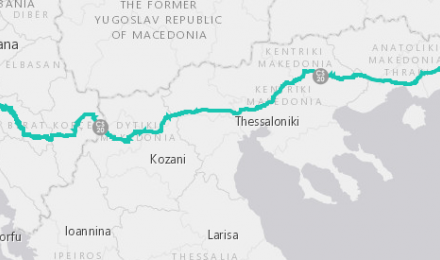In his recent analysis “The Age of Discontent – Greek publishing through six years of austerity”, Socrates Kabouropoulos, the man behind the Greek books-in-print database Biblionet, discusses the effects of the economic recession on the Greek publishing market, noting how it has thoroughly changed its structure, operation, quantity and quality features.
A direct effect of the economic crisis refers to the reduction of books currently published. Following a ‘book title boom’ during the ‘90s, the number of new titles started decreasing since 2009. Fiction and poetry have shown the greatest resilience, while the production of social and human sciences has been fragile and that of children’s books and of all the other subject issues showed a steep fall.
The rate of translations in the book production fell from 42.5% to 32.1%, during the same period. The cost of rights and translation fees is only one reason for this reduction, while the persistent commercial success of titles by Greek authors bears witness to an extended usage of literature as a means of reaffirming notions of cultural identity, identifying with and, at the same time, escaping from the harsh realities of the crisis.
The outbreak of the crisis has shifted interest towards books on politics, economics and the European Union and in 2015 towards contemporary history anew. What is surprising is the persistent growth of Greek poetry books, with an enlarged presence of a younger generation of politically sensitive poets in websites, blogs, readings and public events.
 As far as book publishing is concerned, while in 2004, seven leading publishers, producing over 200 titles a year, accounted for 24% of the total book title production, in 2011, their number was diminished to merely three and their production share to 8.8%. The effects of the crisis were felt more severely at the top, where the media groups were more exposed to the negative effects of the recession, from reduced consumption to diminished advertising expenses: Ellinika Grammata seized operating in 2011, Modern Times followed in 2012, as did IntroBooks, while Lambrakis Group suspended its book title production by 40%.
As far as book publishing is concerned, while in 2004, seven leading publishers, producing over 200 titles a year, accounted for 24% of the total book title production, in 2011, their number was diminished to merely three and their production share to 8.8%. The effects of the crisis were felt more severely at the top, where the media groups were more exposed to the negative effects of the recession, from reduced consumption to diminished advertising expenses: Ellinika Grammata seized operating in 2011, Modern Times followed in 2012, as did IntroBooks, while Lambrakis Group suspended its book title production by 40%.
Putting some of the leading players off the ring, the crisis has created more free space at the top. Two different models of corporate “success” have been shaped. The one of a global, balanced and diversified publisher, building its sustainability through the variety of its production and readership (i.e. Patakis), and the one of a publisher investing in high-cost advances mainly in fiction & children’s books, buying rights for the major Greek and international best sellers (i.e. Psichogios). At the same time, a number of startups have emerged, aiming at a small literary production of an artistic quality (Kichli, Perispomeni, Shakespearean/Shakespirikon, Antipodes, ePoema, Poikili Stoa, Kokkino, et. al.)
The decline of the media conglomerates has affected bookselling, as much as it has affected book publishing. The year 2013 has marked a negative landmark: the closing-down of Hestia Bookstore after 120 consequent years of operating. Meanwhile, Public bookstores coping the concept of a multiple product store, expanded in every major Greek city. At the same time, a number of new, small independents (Epi Lexei, Pleiades, Shakespirikon, Booktalks, Lexikopoleion, Mauve Skiouros, Booktique, et. al.) have sprung up, with an enlarged selectivity towards distinct quality books, events and readings organized on a regular basis and a credible service of orders which come out of personal contact.
According to surveys conducted by the National Book Center of Greece (1999-2010), the interest towards book reading seemed to increase based on the ‘weaker’ strand of the readership (of those who read on average, up to 3-4 books a year). The positive sign in this development is a potential shift towards book-reading, at a time of economic downturn.

It has always been interesting to explain why public policies in Greece fail exactly at the point where they could have a chance to help recover a certain field of social or economic activity. In Greece, the government decisions to close down the National Book Centre, with no other alternative institution remaining as such, as well as to raise the taxes in all the intermediate phases of book production bears witness to an inconsistency of Greek policymaking within the context of austerity to move on with the right reforms needed. These negative developments came to add on the lack of a sustainable policy for textbooks and for public libraries. The latter part has left charities, such as the Stavros Niarchos Foundation and its “Future Library” to appear as the most important players in the field of library modernization.
Rights sales constitute a healthy vehicle for Greek publishing, because of the small size of the domestic consumption. To achieve them, the language barrier has to be beaten. During recent years, this hasn’t been easy, in spite of Greece being invited in a number of book fairs. After 2010, however, the road to international reception has been easier for a certain literature dealing with the ones particularly affected by the economic crisis, along with a literature radical in form and content and a literature of critical reflection.
 As far as e-books are concerned, they were launched in the trade market in 2010, following their rising success in the English-speaking countries. Their degree of penetration, though, six years later, is less than 1% of the value of the market. Copy-free literature has been promoted by initiatives such as openbook.gr. An acclaimed medium-size publisher (Periklis Douvitsas from Nefeli Books) has recently launched a ‘fair trade’ e-book platform (fairead.net), aiming to mobile distribution. Mobile distribution, promoted as ‘a book in every pocket’, seems to be closer to e-book prospects compared to audiovisual and trans-media digital publishing, in an effort to overcome the global stagnation in e-book sales.
As far as e-books are concerned, they were launched in the trade market in 2010, following their rising success in the English-speaking countries. Their degree of penetration, though, six years later, is less than 1% of the value of the market. Copy-free literature has been promoted by initiatives such as openbook.gr. An acclaimed medium-size publisher (Periklis Douvitsas from Nefeli Books) has recently launched a ‘fair trade’ e-book platform (fairead.net), aiming to mobile distribution. Mobile distribution, promoted as ‘a book in every pocket’, seems to be closer to e-book prospects compared to audiovisual and trans-media digital publishing, in an effort to overcome the global stagnation in e-book sales.
TAGS: BUSINESS & TRADE | CRISIS














